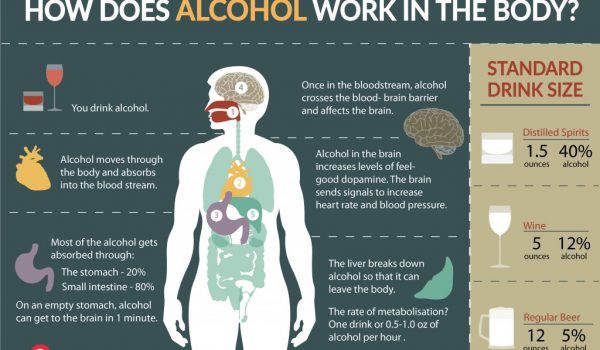Virtually every organ system is affected by alcohol.
Click on the following links to read more about how the physical body is impacted by alcohol.
Brain
Alcohol AND…

Antibiotics and alcohol can cause similar side effects, such as stomach upset, dizziness and drowsiness. Combining antibiotics and alcohol can increase these side effects. Keep in mind that some cold medicines and mouthwashes also contain alcohol. So check the label and avoid such products while taking these antibiotics.
It’s best to avoid combining antidepressants and alcohol. It may worsen your symptoms, and it can be dangerous. Don’t stop taking an antidepressant or other medication just so that you can drink. Most antidepressants require taking a consistent, daily dose to maintain a constant level in your system and work as intended. Stopping and starting your medications can make your depression worse.
Mixing antidepressants and alcohol can result in:
- Drowsiness, dizziness; increased risk for overdose; increased feelings of depression or hopelessness (all medications); impaired motor control (quetiapine, mirtazapine); increased alcohol effect (bupropion); liver damage (duloxetine)
- Monoamine oxidase inhibitors (MAOIs), such as tranylcypromine and phenelzine, when combined with alcohol, may result in serious heart-related side effects. Risk for dangerously high blood pressure is increased when MAOIs are mixed with tyramine, a byproduct found in beer and red wine
For more information visit:
- Decreases aerobic performance. Alcohol is a diuretic that can lead to dehydration. It also impairs temperature regulation and accelerates fatigue.
- Impairs motor skills and decreases strength, power and sprint performance. Alcohol slows reaction time and impairs precision, equilibrium, hand-eye coordination, accuracy, balance, judgment, information processing, focus, stamina, strength, power and speed for up to 72 hours (three days).
- Slows recovery. Alcohol can interfere with recovery by delaying muscle repair.
- Negatively affects body composition. Drinking could lead to increased body fat accumulation due to ethanol storage as fat. Alcohol’s stimulant effect can also result in increased caloric intake and, therefore, overall weight gain.
- Increases the risk for nutrient deficiencies. Not only does alcohol decrease vitamin and mineral absorption, but also certain nutrients are used to help clear alcohol out of your system, leaving less of those nutrients available for normal function.
- Increases risk of illness and injury. Regular alcohol consumption depresses immune function and contributes to delayed healing.
- Disrupts sleep. Alcohol can interfere with sleep patterns by reducing time spent in deep, restful sleep.
- NCAA article with more information.
Alcohol alters serotonin levels in the brain. Serotonin is a neurotransmitter, or chemical, used by the brain to regulate mood, and imbalances in serotonin are thought to cause mental health conditions like depression, anxiety, and obsessive-compulsive disorder.
Alcohol is a central nervous system depressant that causes brain activity to slow down. Alcohol has sedative effects that can induce feelings of relaxation and sleepiness2, but the consumption of alcohol – especially in excess – has been linked to poor sleep quality and duration. Drinking alcohol before bed can add to the suppression of REM sleep during the first two cycles. Since alcohol is a sedative, sleep onset is often shorter for drinkers and some fall into a deep sleep rather quickly. As the night progresses, this can create an imbalance between slow-wave sleep and REM sleep, resulting in less of the latter and more of the former. This decreases overall sleep quality, which can result in shorter sleep duration and more sleep disruptions.
Medications for sleeping problems such as Ambien (zolpidem), Lunesta (eszopiclone), Sominex (diphenhydramine, Unisom (doxylamine) when mixed with alcohol can results in drowsiness, slowed or difficulty breathing, impaired motor control, and memory problems.
Pain (such as muscle ache, minor arthritis pain), fever, inflammation medications such as Advil (Ibuprofen), Aleve (naproxen), Excedrin (aspirin, acetaminophen), Motrin (ibuprofen), Tylenol (acetaminophen) when mixed with alcohol can result in the following reactions: stomach upset, bleeding and ulcers; liver damage (acetaminophen); rapid heartbeat